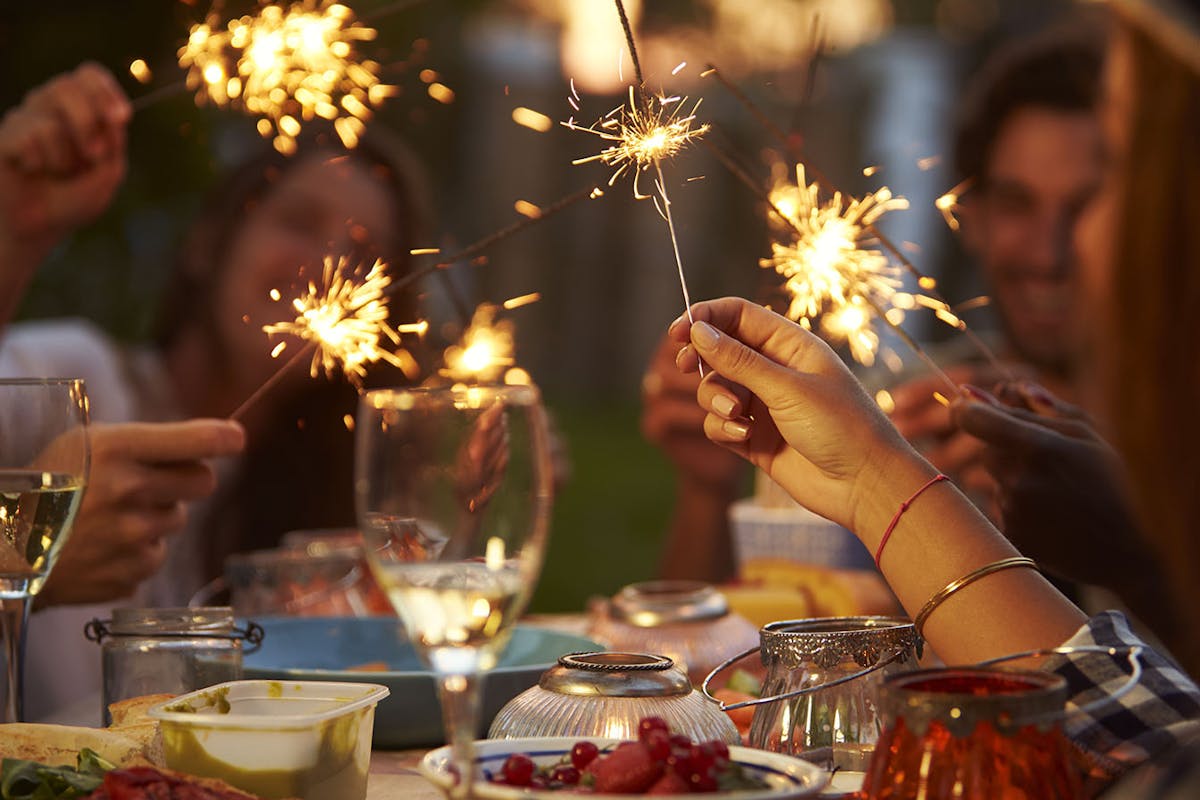Independence Day Safety for Seniors with Dementia

Every July 4th, we pause to celebrate our nation’s birth with friends and neighbors. Traditionally, it’s a day packed with parades, barbecues, street fairs, and fireworks. Many Independence Day parties also include shooting off small firecrackers in the yard.
While the festivities are a favorite for many, others might find them frightening. Among those who struggle on Independence Day are adults with Alzheimer’s or another type of dementia. The flashing lights and noise created by fireworks may cause anxiety. The senior could become agitated or even attempt to wander from home in search of a calmer place.
If a spouse or parent has dementia, it’s important to take steps to keep them safe on the Fourth of July and the days leading up to it. While many communities have canceled their fireworks celebrations because of the COVID-19 pandemic, neighborhood celebrations will likely take place, anyway. The following tips can help you keep a senior with dementia safe during your holiday gathering.
Dementia and Fireworks: Celebrating Safely on the Fourth of July
1. Host a small gathering with familiar people
It’s not always the fireworks that create anxiety for adults with dementia. Sometimes it’s the sea of unfamiliar faces at large gatherings. If you will be hosting an Independence Day party, try to limit the size. Your loved one will likely find it less overwhelming and more enjoyable.
2. Plan celebrations for a senior’s best times
While you might want to host an evening party so you can shoot fireworks after dark, it might not be a great time of day for a senior with dementia. As a family caregiver, you have probably noticed that there is a pattern to your loved one’s best and worst times of day. Try to plan your Independence Day festivities around those times. For example, many adults with Alzheimer’s experience sundowner’s syndrome. This makes late afternoon and early evening, already tough times for people with Alzheimer’s, even more difficult. A lunchtime or early afternoon picnic can be just as much fun as a celebration later in the day.
3. Create a peaceful, inviting retreat space
How safe a senior with dementia feels can be impacted by many factors, including their environment. Even if you keep your gathering small, your family member might become tired or agitated. Setting up a safe place for them to rest will be helpful if it gets too chaotic. This is easy to do if the senior lives with you. If they don’t, pick a quiet place in your home, such as a bedroom or den, that is furthest from the noise of the party. Play soft music or provide noise-canceling headphones they can wear.
4. Arrange for alternative activities
Once you have a quiet space designated, it will also help to set up a few activities the senior can engage in. Adults with Alzheimer’s and dementia often find it calming to perform repetitive tasks, such as folding towels or sorting cards. You can also set out old family pictures for seniors to look through. Lay out supplies for a few arts and crafts projects. These have an added benefit—giving family members an opportunity to spend time sharing a meaningful activity with an older adult.
5. Give guests a heads-up before the party
Many people aren’t familiar with Alzheimer’s disease or dementia, and the associated challenges. Should your guest list include people who aren’t aware of your family member’s situation, send them a quick email or text. It might be helpful to include a link to an article like Helping Family and Friends Understand Alzheimer's Disease from the National Institute on Aging. It’s a quick but informative read.
Follow the Life Protect Blog
We know living your best life during retirement is important. That’s why we encourage you to bookmark the Life Protect blog and visit often. We update it frequently to help older adults and their families stay abreast of the latest news on aging.
Should you have questions about a medical alert system, please call us at 1-844-203-5617. We’ll be happy to help!